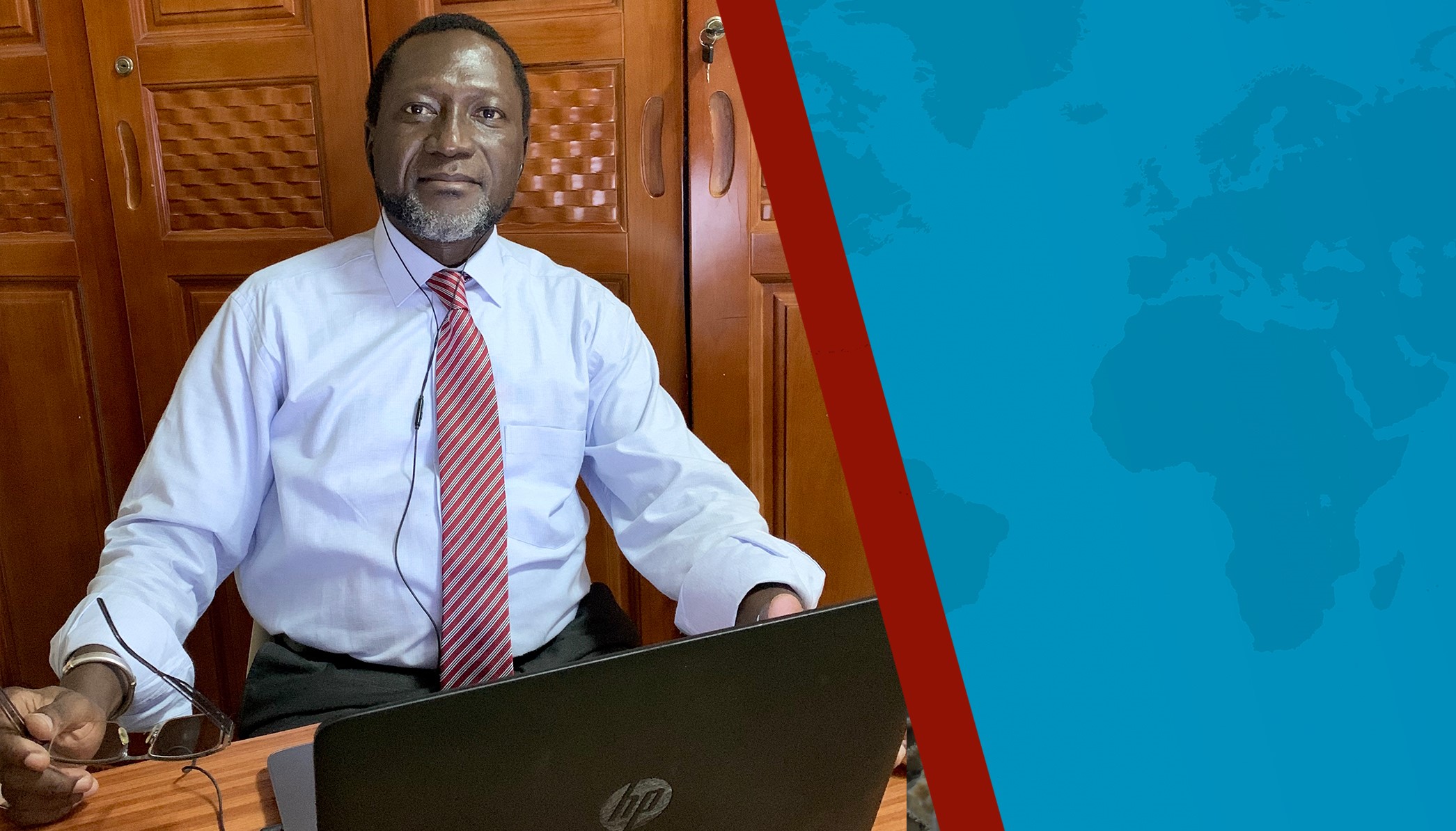
Root Capital’s innovative advisory services are powered by our talented team of advisory consultants. These trainers work closely with agricultural businesses to address the day-to-day challenges of running a remote enterprise. Working together, they build skills and processes that foster growth and resilience in the long term. One of these advisors is Ousmane Sané, known as Sané, who’s been a trusted partner of Root Capital’s clients in Senegal for seven years.
As COVID-19 began to threaten the region, we suspended all travel to protect our staff and the rural communities where we work. With staff stuck at home, our advisory team had to figure out how to continue providing transformational capacity building to rural businesses from afar. We sat down with Sané to talk about how he’s helping businesses and communities strengthen their resilience in the face of a global pandemic.
Root Capital: You’ve been the lead advisor on our Talent Partnerships program—through which we place recent graduates as interns at local agricultural enterprises—for the past few years. How did that program come about?
Ousmane Sané: There’s a large disconnect here in Senegal. Business leaders’ intentions are good, but many of them don’t understand the importance of bookkeeping. Even those who do have accounting operations can’t find talented people to hire in their community. They instead outsource the work to external bookkeepers whose focus is more on completing the job than doing it well. This weakens the business and doesn’t set them up for long-term success.
At the same time, youth have their degree, but lack opportunities to practice in enterprises. This makes it difficult for young people to find jobs despite their knowledge. So, in the Talent Partnerships, we found what is a weakness for the students and a weakness for the business and turned it into a strength for both.
Root Capital: It sounds like there’s a large pool of qualified candidates that would be interested in the opportunity of the Talent Partnership program. How do you select the interns and match them with the right business?
Sané: After looking at their accounting skills, we prioritize interns who come from the region where each business operates. By showing talented young people that they can build a career without having to migrate, we expand their options and strengthen the community. And the benefits to both the intern and the business are huge. This year, two of our three talent partners speak Fula, a local language not spoken much in Dakar. It’s very valuable for the intern, business leaders, and employees to be able to speak in their mother tongue. Once we have a finalist group, the business interviews each one so we can find the best fit. We also consider the gender breakdown to ensure we’re giving equal opportunity because women often face barriers in finding this type of work. This year, two of the three interns are women.
Root Capital: What challenges have there been in implementing the program?
Sané: Some companies are, at first, skeptical of welcoming a young outsider into their companies and want to be guarded with their information. We explain to the business leaders the importance of this exercise and show how it will help them foster better relationships with banks, social lenders, and buyers. These businesses eventually come to see the importance and, in the end, many even end up hiring their interns for full-time positions at the end of their placement.
Of course, with COVID-19, we have had to face new challenges as our advisory work with these businesses has become completely digital.
Root Capital: It seems like quite the change for you to switch to remote advisory services. Can you talk a little more about how COVID-19 has changed the services you’re providing to these interns and businesses?
Sané: At the beginning of the pandemic, it became clear that we would need to change our operations quickly. I went out and bought a computer with a video camera, along with other technological gear like a modem that would help me and my business partner continue to provide training. To figure out the technology and redesign our training took almost two weeks of preparation, but with some patience we did it.
The interns proved critical in preparing the businesses to receive remote advisory. These young people are computer literate—very good with new software—so they helped the business leaders understand how to use the technology. The experience has been so successful that it shows that remote advisory services can work. Already, we’re thinking about what services might be better delivered remotely even after travel is allowed again.
Root Capital: How are the interns helping the businesses adapt to the challenges of COVID-19?
Sané: Beyond the technological aspect, Talent Partnership interns are helping these businesses build resilience during the pandemic. These businesses are facing great challenges as local supply chains are disrupted due to government restrictions and borders have closed, preventing farmers from hiring workers from the south of Senegal or neighboring Mali to help with the harvest.
With these challenges in mind, we had each intern work with their manager to create a new vision and mission for the business—including a detailed action plan and budget—that accounts for the current situation. We didn’t do this activity last year, but we wanted to harness the expertise of the interns given all of this uncertainty.
For short-term assistance, we’ve worked with the interns to apply for tax relief measures from the Senegalese government, including tax forgiveness. These businesses were only able to obtain this lifeline thanks to the solid bookkeeping established through the Talent Partnership program. And the interns are gaining the once-in-a-lifetime experience of guiding a business through this unique time with a level of responsibility they couldn’t have found in another job. These young people are confident because they know they’re not alone. We’re with them every step of the way.
Root Capital: Thank you so much for your time, Sané, and for your hard work in adjusting during this pandemic.
Sané: Thank you!
Our West African Talent Partnerships program is made possible through the generous support of The Mastercard Foundation. Root Capital and the Mastercard Foundation have partnered to support early-stage agricultural businesses that will help raise incomes for more than 300,000 smallholder farmers in West Africa.
This is the fourth in an ongoing series of stories about our partnership with the Mastercard Foundation in West Africa.

